🆚What is the difference between "please be informed" and "Please be advised" and "please be
The phrase "please be informed" instructs the reader to ensure his or her knowledge of specific facts or information. Beginning the phrase with "please" does two things. First, "please" alerts the reader that he or she is the recipient of the following command or request. Second, "please" establishes the writer's desire to be.

Please be informed that our office at the Second Floor is under renovation Official Website of
Here are some formal ways to phrase "please be informed": 1. "Kindly note that…". This expression is a polite way to introduce important information in a formal email. It conveys respect and acknowledges the recipient's attention to the matter. For example:
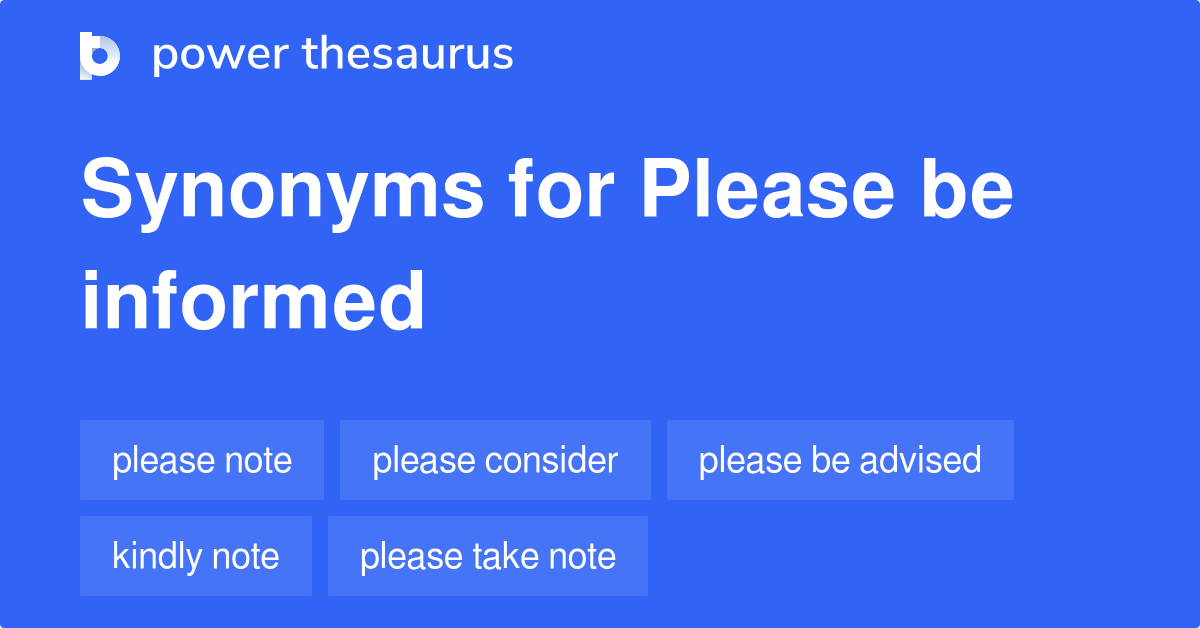
132 Phrases for Please Be Informed
Here are some formal ways to express "please be informed": Kindly be informed: This phrase is commonly used in formal written communication, such as emails, memos, or official letters. For example, "Kindly be informed that the meeting has been rescheduled to next week.". We would like to inform you that: This is a polite and formal way.
🆚【please be informed】 と 【Please be advised】 と 【please be noted】 はどう違いますか? HiNative
Other phrases to say Please Be Informed? Phrases for Please Be Informed (alternative phrases for Please Be Informed).

Please be informed.
For your information. For your reference. 1. I Am Writing This Email to. Another way of saying "this is to inform you" is with "I am writing this email to.". It's a great option if you're sending a bulk email (to students, staff, or a team). You can use this phrase to remain formal and offer some important information.

Stay Informed Sign. Stay Informed Circular Band Label. Stay Informed Sticker Vector Illustration
The phrase "please be informed" plays a significant role in maintaining politeness and respect in professional communication. Its usage exemplifies a polite tone in conveying information, which is essential for building and maintaining good business relationships. The term conveys a direct message alongside a courteous approach.

Be Informed Text on Blackboard with Businessman Stock Photo Image of business, corporate 87223398
Please keep me informed on the hiring process and if you interviewed any memorable candidates. Bonus Tip. When writing professional emails, you also want to ensure you're using the appropriate style and tone. LanguageTool is a multilingual spelling and grammar checker that can help rephrase your sentences to be more formal. Give it a try and.

Be informed Stock image Colourbox
Dear Partner, With reference made to Section 5G, «Export Compliance» of Apple Authorized Service Provider Agreement dated 01.04.14, please be informed that in accordance with the new sanctions on the Crimea Region announced by the US Government on December 19 , 2014you shall not sell Apple products and/or provide services related to Apple products in the Crimea Region as of February 1 , 2015

Please Be Informed Meaning Dear family and friends, IMPORTANT NOTICE! Please be / Yeah
All the best, Darren. 2. I Would Like to Make You Aware. "I would like to make you aware" is a good example of what to say instead of "please be informed.". It works well because it is polite with the use of "I would like to.". Generally, this phrase shows that you know someone doesn't have the information you want to share already.

Be Informed Message Illustration Design Stock Illustration Illustration of road, newspaper
Also, feel free to reword it with this variation: Kindly be informed. It's very similar and still polite. However, replacing "please" with "kindly" can help you to keep things interesting. Also, you may have seen the following phrase before: Please be advised. It's synonymous with "please be informed.".
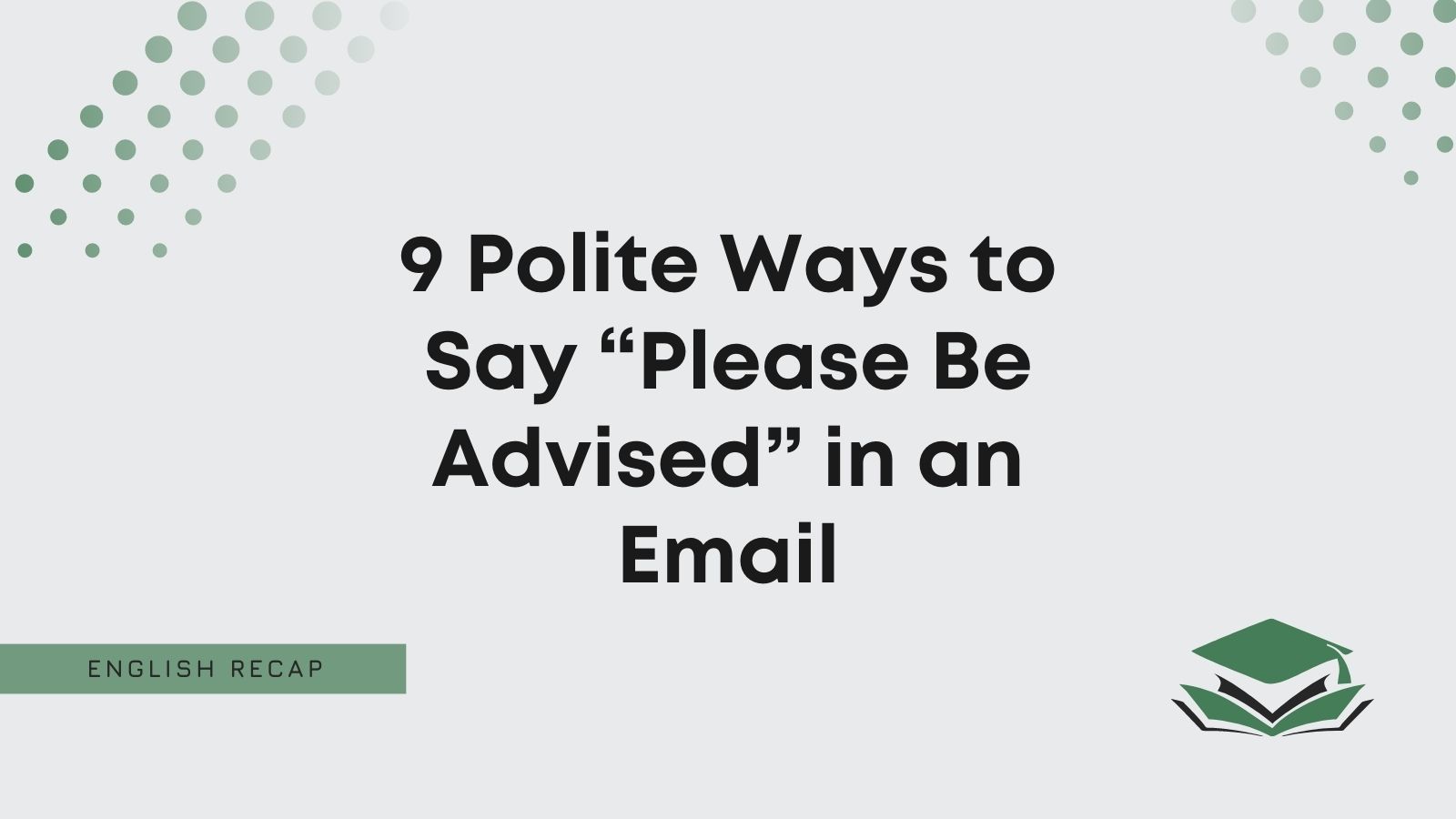
9 Polite Ways to Say “Please Be Advised” in an Email English Recap
2. Vice. Please be informed and inform us, kindly. 3. The New York Times. The FSA was informed that same day. 4. BBC. As the story goes, a general once told his weather-forecasting team, "I appreciate being informed that your forecasts are no better than random, but please keep sending them on, as the army needs your predictions for planning.

Stay Informed Speech Bubble Ilustração do Vetor Ilustração de nota, social 160620935
Ex: Dear Ms.Fan. - Hello [Team Name], (to groups) Ex: Hello Marketing Team. If you're sending an email to an address that doesn't have a specific contact name, you can just use "Dear Sir/Madam". Otherwise, you can use the formal "To Whom It May Concern" greeting. 2.
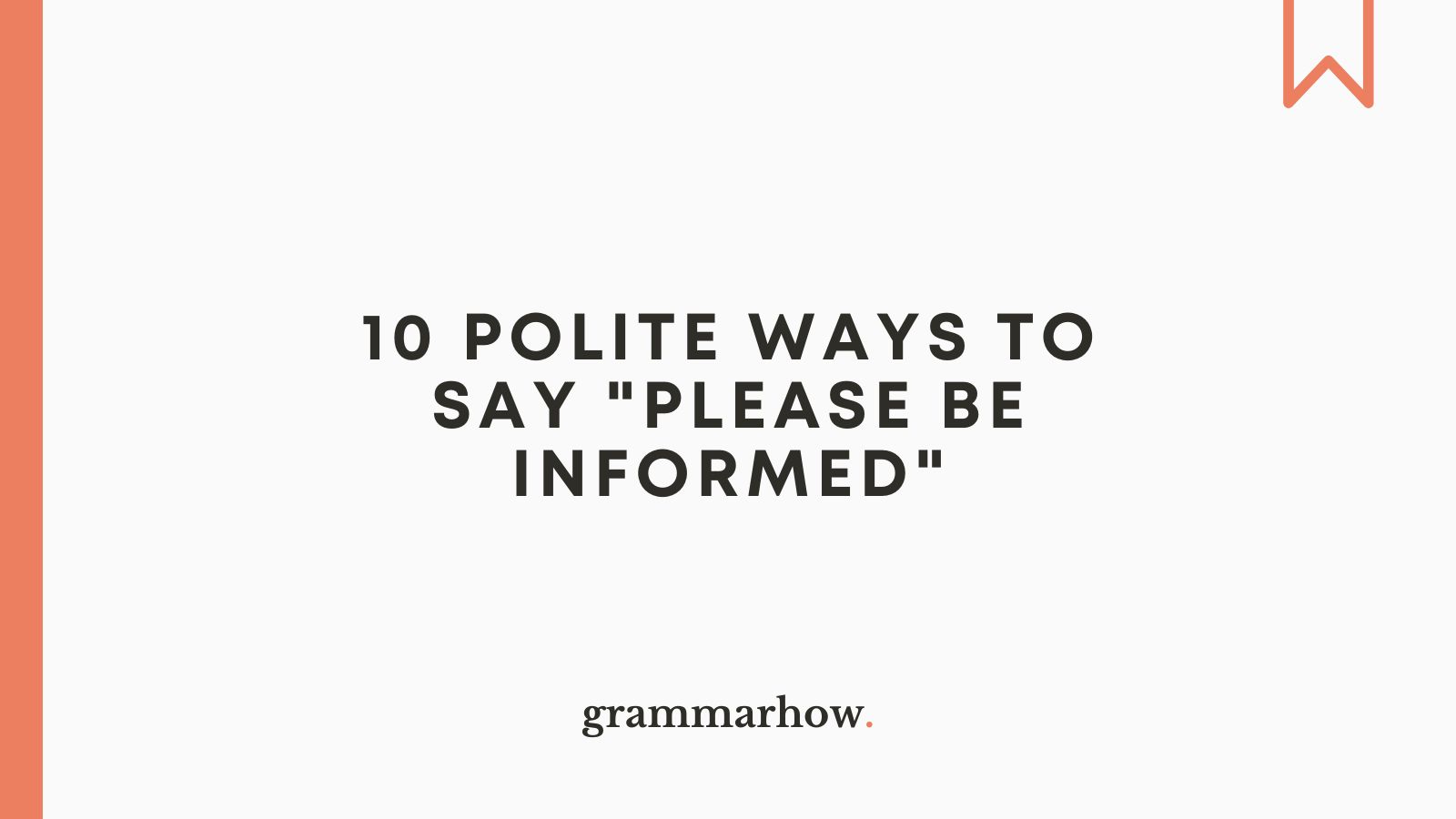
10 Polite Ways to Say "Please Be Informed"
Please be informed that it also allows you to play using virtual currency, which can be acquired as you progress through the game, or paying with real money. Perlu diketahui bahwa permainan ini juga memungkinkan Anda bermain menggunakan mata uang virtual, yang dapat diperoleh saat Anda maju melalui game atau dengan membayar dengan uang sungguhan.
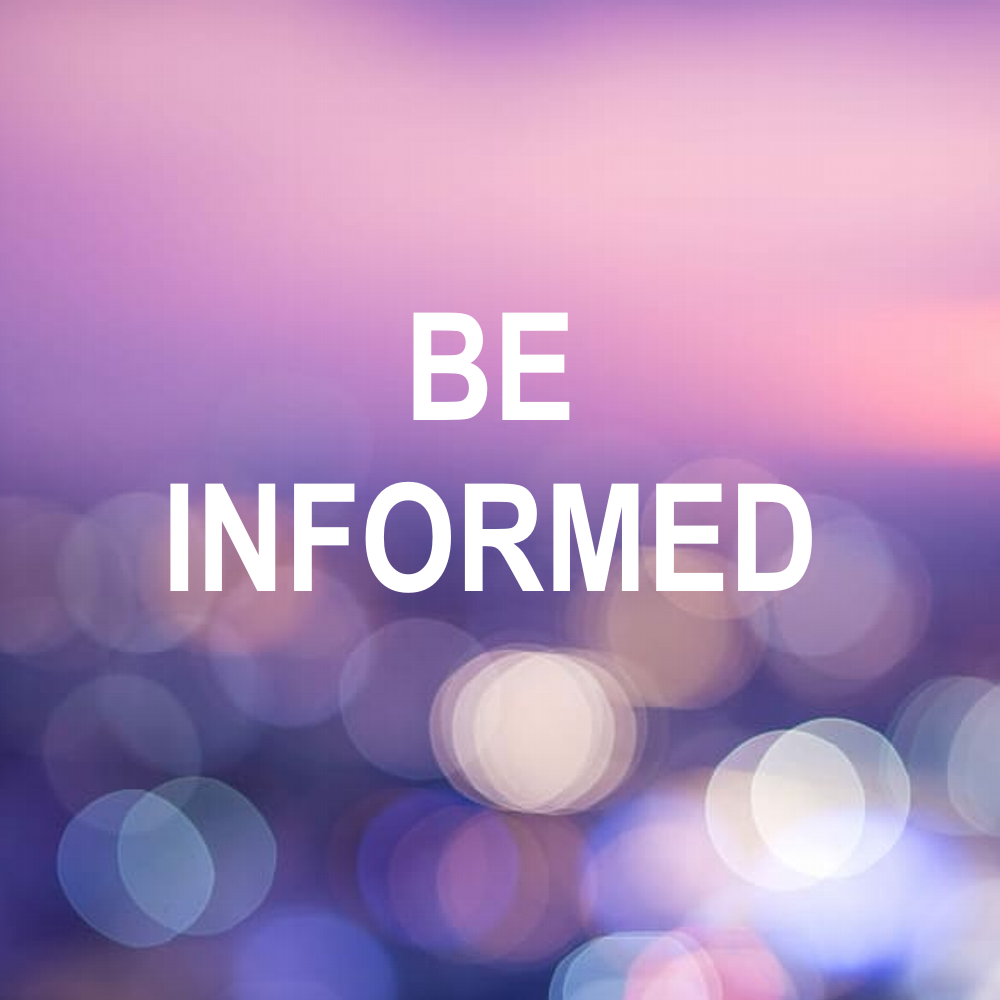
Be informed Fast English Oktató Kft. céges angol nyelvoktatás üzleti angol nyelvtanfolyam
There are plenty of better alternatives to using "FYI" formally. Here are some of the best ones we want to share with you: I would like to bring to your attention. I would like to update you on. I would like to notify you that. Just so you know. Just so you are aware. In case you were not made aware. In case you did not already know.
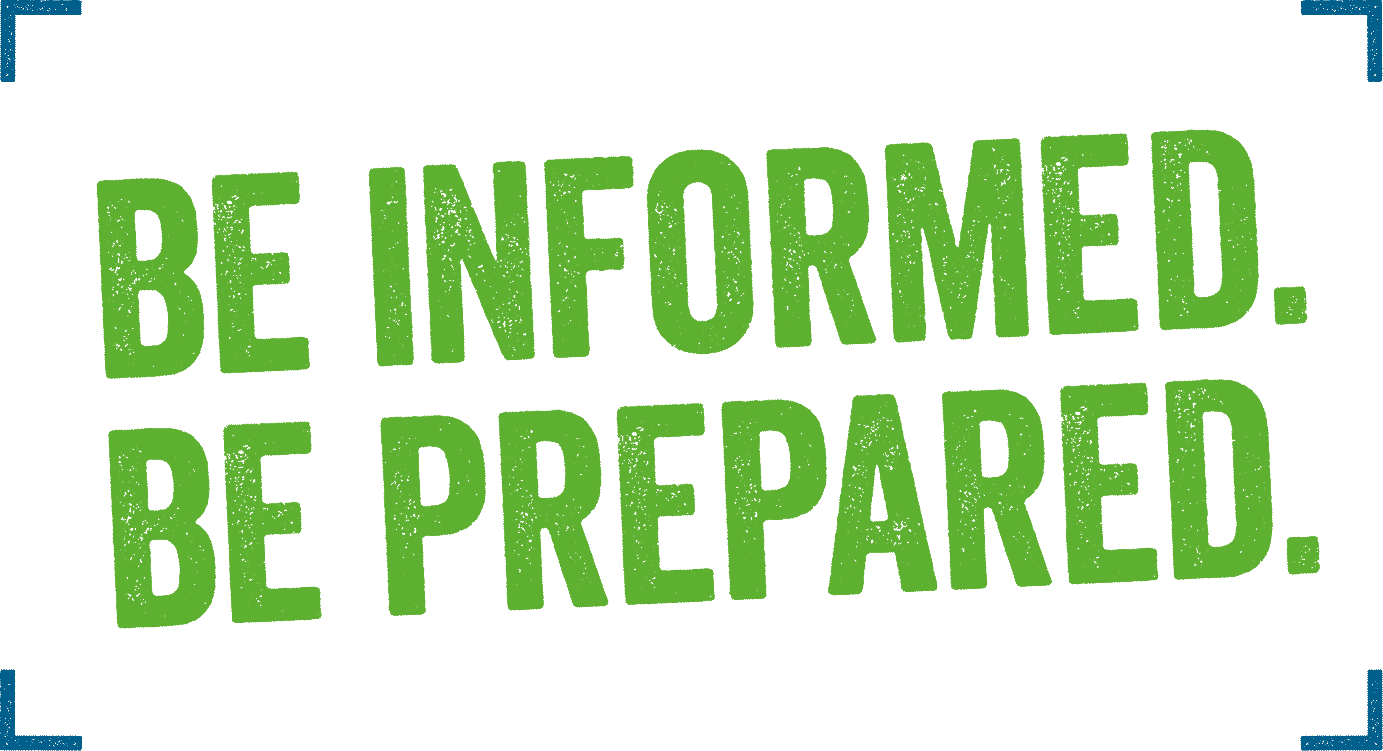
Be informed Emergency Management
Arti dari kalimat "just so you know. Please be informed that; Kalimat ini juga dapat menggantikan for your information karena maknanya yang serupa yakni memberitahukan sesuatu pada seseorang. Kalimat ini sifatnya lebih sopan dan seringkali digunakan dalam komunikasi tertulis. Namun biasanya juga digunakan dalam komunikasi lisan.

please be informed that Kylie Vance
Yes, "Please be informed that." is correct, as is "For your information". Both formulations are common and current. The former is considered more polite, and is the accepted form in written communication, but it can also be used sarcastically in oral communication by a speaker who wishes to assert authority over a subordinate.